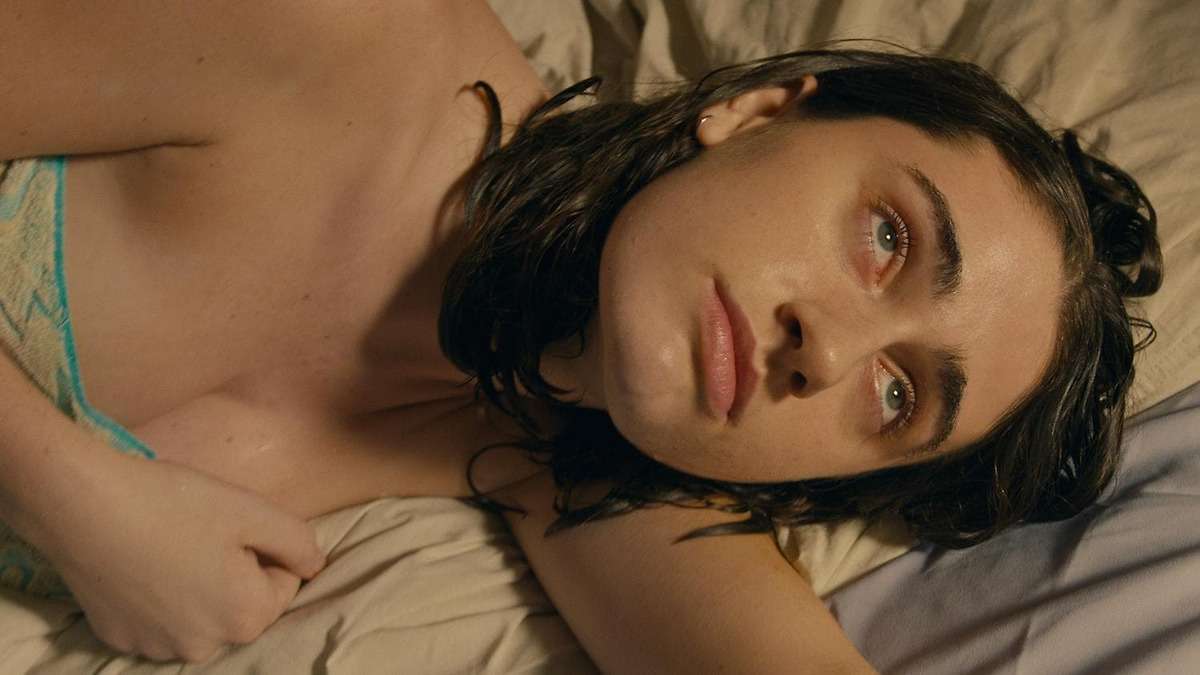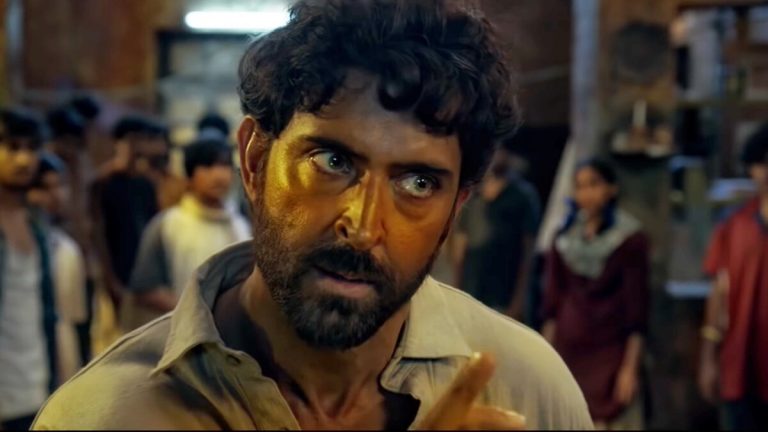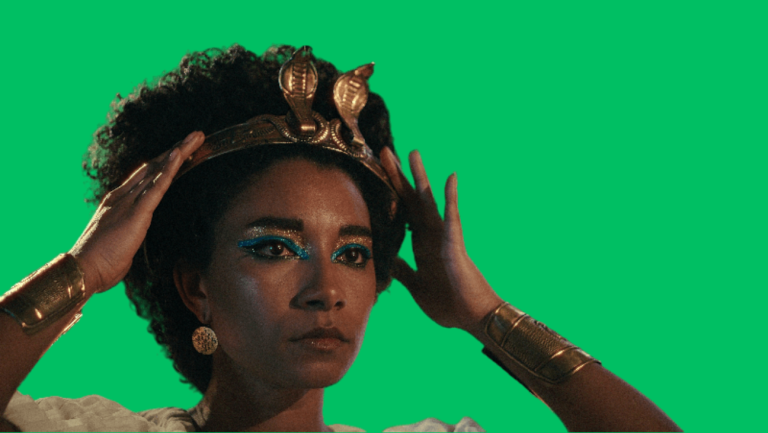Canadian filmmaker Ally Pankiw’s ‘I Used to be Funny’ stars Rachel Sennott, Caleb Hearon, Olga Petsa, Jason Jones, Dani Kind, and Sabrina Jalees and follows an aspiring stand-up comedian and nanny who is struggling with PTSD. When the girl she had been babysitting the past year goes missing, she is forced to confront her trauma again and decide if she should put herself first or the life of the young girl.
In the following article, we will take a detailed look at what happens in I Used to Be Funny, including what the ending means. Please be aware that the post contains spoilers, so proceed at your own risk.
I Used to Be Funny (2024) Plot Summary & Movie Synopsis:
Going back and forth in time, I Used to Be Funny introduces us to Sam Cowell (Rachel Senott), an aspiring stand-up comedian who usually performs her sets at a local bar and jokes about how evil and bad men have been all her life. Her jokes are a hit because her target audience and point of view are sharp and rigged in the present context, and they also somehow give us an idea about what she is as a person.
When we first meet her, it is visible that she is struggling with some form of trauma from an experience she has recently had. She has stationed herself in her apartment, which she shares with friends and fellow comedians Paige (Sabrina Jalees) and Philip (Caleb Hearon). They are incredibly supportive of whatever time she wants to take in order to get over her PTSD, but they are also worried that she will be just isolating herself from everyone, including not doing stand-up comedy – something that she so dearly loves. She has also broken up with her long-standing and seemingly supportive boyfriend, Noah (Ennis Esmer), possibly after having the said traumatic experience.
This is until she hears the news that 14-year-old Brooke Renner (Olga Petsa) has been missing for a while. This further triggers Sam, who used to work as an au pair (a sort of Babysitter for Young adults) for Brooke. Paige suggests that Sam should go to the police station to mention that Brooke had shown up drunk on her doorstep just a day before she went missing. Depressed and unable to literally move her body, it takes a lot for Sam to get out of her house to go to the police station. There, she tells Office Conrad (Miguel Rivas) about Brooke throwing a rock at her door before telling her that she hates her and leaving. Conrad is sympathetic towards Brooke for having to come to deal with the police again.
What was Sam’s relationship like with Brooke?
After her visit to the station, Sam seems to enter a more disturbed state. She often experiences flashbacks of her life with her ex, Noah, but these flashbacks mostly tell us about her relationship with Brooke.
Since Sam is one of those stand-up comics who are waiting to be brought into the spotlight, paying rent has always been difficult for her. So, when she is not doing her material on stage or writing about it, she works as a babysitter. Her latest gig in that department is being a nanny to Brooke, a young, lonely teenager dealing with the fact that her mother is unwell and might die any minute. She is lonely because her father, Cameron (Jason Jones), a fellow police officer to Officer Conrad, is mostly absent, and her aunt Jill (Dani Kind) is caught between her sister’s treatment, handling her job, and taking care of her own family.
Hiring Sam helped the entire situation a lot. Even though Brooke is initially not welcoming of Sam, when she realizes that they share many similarities in spite of their differences in age, the two of them start bonding.
What is the reason for Sam’s PTSD?
When Brooke’s mother died, Sam’s presence became really handy for Cameron. Sam was both like a sister and mother figure for Brooke, being there and helping her through the pain she felt because of her mother’s loss. That is until, one night, Cameron came home extremely drunk just when Sam was about to leave.
Now, Cameron really loved his wife; we can understand that from the scene where Sam consoled him when he was crying after his wife’s death. However, much like most men, his way of dealing with the loss wasn’t talking about it. When he came home drunk that night, he showed Sam one of her stand-up sets that he had seen on YouTube. In that clip, Sam was seen talking about how none of her au-pair employers hit on her and how she loved having rough sex.
This, coupled with his loss and men’s idea of what a woman wants, pushed him to do the unforgivable. He forced himself on Sam, raping her. We see glimpses of this incident through Sam’s flashbacks. What she did after that was rush Brooke out of the house, saying that there could be carbon monoxide poisoning in the house. Later, when the police arrive to take Sam away, Brooke is left dumbfounded about what had happened.

I Used to Be Funny (2024) Movie Ending, Explained:
Is Brooke dead or alive?
After the incident, Sam kept it to herself and left working for Cameron all at once because she did the right thing and charged him with sexual harassment and assault charges. The abrupt departure, after being a constant source of support following her mother’s passing, left Brooke feeling emotionally adrift and deeply hurt by Sam’s seeming abandonment. This prompted Brooke to start hating Sam. In fact, when her father was convicted of harassing Sam, her hate became even more intense because she was abandoned again. One of the main reasons for her going missing was Sam not talking to her or basically ruining her already-ruined life even more.
It’s been a while since Brooke has been missing, and even though Sam wanted to avoid getting more involved with anything related to the Renners, it kept haunting her that one of her close friends (yes, Brooke had become a great friend to her, too) was missing. So, in spite of losing herself and not being able to be funny, Sam decides to try finding her.
One of the days when Brooke’s aunty came to meet her, she briefly mentioned someone named Nathan (Stephen Alexander). In her pursuit to find Brooke’s whereabouts, Sam went to their house, which was now put on sale and empty. There, she found Brooke’s personal diary and concluded that Brooke, who had been missing for a while, might have been squatting in the house for the past weeks. She takes the diary and finds Nathan’s number in it.
On a hunch, she calls up Nathan, pretending to be one of Brooke’s friends, setting up a meeting to buy some drugs for him. The only thing is, Nathan lives in Niagra Falls, so Sam decides to drive all the way there in order to follow up the Nathan clue.
She rents a motel near the exchange point and traces Nathan from a distance. There, she also sees Brooke just casually hanging out with Nathan and his friends. When Sam sees that Nathan is older than Brooke and can actually take advantage of her naivety, she decides to break into his house.
When she finally gets upstairs, she finds Brooke under the influence. Upon asking, she realizes that she has taken a ‘teener’ (1/16 ounce of Meth). Just then, Nathan walks in, and Sam has to pepper-spray him in order to take Brooke out of his house and back to her motel.
After Brooke’s drug-induced haze passes off, the two of them get into a heated argument, where finally, Sam and Brooke talk about the incident that changed everything. The conclusion of that argument comes down to the realization that the incident broke Sam, which inadvertently made her ‘not-be-funny’ anymore. For a stand-up comic, that’s next to being snatched away with something that is dear to you. Consequently, Brooke has been hating Sam, not because she got her father arrested (in spite of constantly saying that) but because she left her alone.
Later, the two girls drive back home with Brooke, promising Sam that she will not do drugs again if she promises not to tell her aunt about it. The ending of I Used to Be Funny sees Brooke requesting Sam for one last thing before she goes back to her aunt’s place. The thing, of course, turns out to be the duo visiting Niagara Falls together. After which, we also briefly see Sam going up on stage for one of her stand-up sketches, which starts off with a rape joke. Did Sam get over her PTSD? It’s hard to say because trauma is a different beast altogether. However, if Sam is able to joke about it after not being able to write for a long period of time, we can say that she is on the road to getting there.
I Used to Be Funny (2024) Movie Review:
For a movie that is named “I Used to be Funny,” very little of Ally Pankiw’s debut film is actually funny. At least not in the traditional way. However, that’s not a flaw that we will bring it down about. In fact, Pankiw’s writing and directing are pretty on-point, sensitive, and understanding. There’s a keen eye for understanding both millennials and Gen-Z, which is a difficult balance to pull off, especially when you belong to one of those age groups.
Pankiw also uses Rachel Sennott’s awkward humor and a droopy, judgy persona to give her a terrific character to play with. Sennott is excellent, especially in scenes where she needs to show her more dramatic range, something that her other roles haven’t given her yet.
The strongest suit of the film, however, is the chemistry between Sennott and the young Olga Petsa. As a film that mostly represents a dual tale of trauma, the two ladies play off each other really well, and their chemistry oozes warmth.
That said, one of the major flaws I found in the film was its structure, which moves back and forth in time without giving us proper visual cues to hang on to. After a while, it does feel like a gimmick used to keep the mystery of what really happened from us, making you feel betrayed at times. However, this is an indie film that is worth checking out.
Read More: How to Watch “I Used to Be Funny” from Home?
I Used to Be Funny (2024) Movie Trailer
I Used to Be Funny (2024) Movie Links: IMDb, Rotten Tomatoes, Letterboxd
I Used to Be Funny (2024) Movie Cast: Rachel Sennott, Olga Petsa, Jason Jones, Sabrina Jalees, Caleb Hearon, Ennis Esme, Dani Kind, Hoodo Hersi
I Used to Be Funny (2024) Movie Genre: Comedy/Drama | Runtime: 1h 45m,






![A Quiet Dream [2017]: NYAFF Review](https://79468c92.delivery.rocketcdn.me/wp-content/uploads/2017/07/A-Quiet-Dream2-768x351.jpg)
![Children of the Underground [2022] Explained – The Compelling and Complicated Story of a Determined Vigilante](https://79468c92.delivery.rocketcdn.me/wp-content/uploads/2022/08/Children-of-the-Underground-2022-768x432.jpg)
